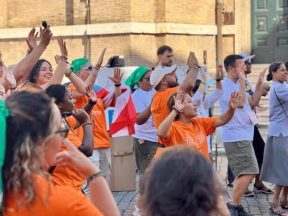Cultural and religious diversity.
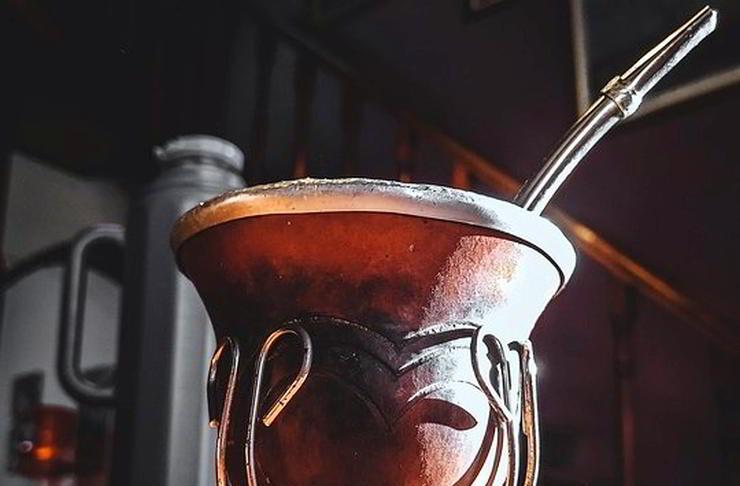
The country is a characterised by extraordinary cultural and social diversity. The Argentine population is predominantly of European origin, with approximately 85-90% of the inhabitants descending from immigrants, mainly Italians and Spaniards, who arrived between the end of the 19th and the beginning of the 20th century.
This makes Argentina one of the countries in Latin America with the largest European presence. Mestizo populations, of mixed European and indigenous origin, are less numerous than in other countries in the region, but are mainly present in the north of the country.
Indigenous communities represent approximately 2-3% of the population and include groups such as the Mapuche, Qom and Guaraní. There are also Afro-Argentine minorities, which, though now very small, are historically significant. Finally, Argentina is home to small but important communities of Arab, Jewish and Asian origin, who arrived during the 20th century. The ethnic composition of the country reflects a complex history of migration, assimilation and the rediscovery
of original identities.
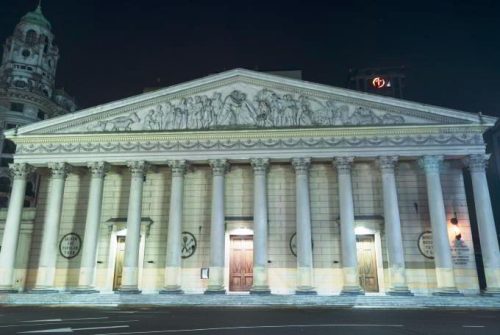
The Metropolitan Catholic Cathedral of Buenos Aires. 75.5% of Argentinians profess to be Catholic. 123rf
From a religious perspective, according to the most recent estimates, the Argentine population is made up of approximately 75.5% Catholics, 8% are people who do not identify with any religion, 15.3% are Protestants (of which 7.9% are Pentecostals), 1.2% are Jehovah’s Witnesses, 0.9% Mormons and 1.2% are people who follow other religions.
In recent years, there has been a significant increase in the percentage of Protestants in Argentina. According to a statistical survey carried out by CONICET in 2019, Protestants represent 15.3% of the population, with a prevalence among young people and people with a low level of education. This phenomenon is partly attributable to the spread of Pentecostal evangelical churches, which have found fertile ground among the most disadvantaged social classes, offering a message of hope and prosperity in a context of economic and social difficulties.
In recent decades, the growth of evangelical and Pentecostal churches in Argentina has also taken on a significant geopolitical dimension. This phenomenon is not only the result of internal social dynamics, but also reflects the cultural and political influence of the United States in Latin America. Evangelical communities often receive organisational and financial support from important US religious institutions, such as the Southern Baptist Convention and the International Mission Board, as well as from international Pentecostal networks such as the Assemblies of God. These entities promote missionary, social and political activities, conveying conservative values and strengthening strategic ties in the region. In addition, philanthropic organisations linked to conservative Christian movements in the US, such as the Family Research Council, provide funding support to many local evangelical communities.
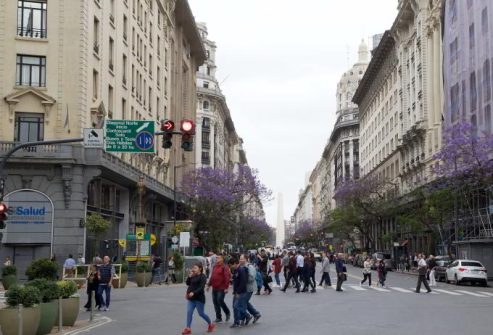
People in an urban street in Buenos Aires. Argentine society comprises a wide spectrum of social classes, including a significant urban middle class. 123rf
This expansion has also influenced the internal political debate in Argentina, favouring the emergence of social and political groups with positions more aligned with certain US orientations, especially on ethical issues such as the role of the family, abortion and civil rights. This evolution reflects a change in the beliefs and values of Argentine society, influenced by factors such as globalization, access to diverse information, and public debate on ethical and moral issues. Despite this, Catholicism maintains a significant presence in daily life, traditions, and national holidays. In addition, growing religious plurality has led to an enrichment of the country’s spiritual landscape, with the emergence of new forms of religious and spiritual expression.
Argentine society is composed of a wide spectrum of social classes, with a significant presence of urban middle classes, but also of popular sectors that face conditions of vulnerability and marginalisation. Socio-economic disparities are accentuated by factors such as the recurrent economic crisis, high inflation and unemployment, which impact especially on the weakest segments of the population. These elements create a climate of social instability that is also reflected in political tensions and organized crime phenomena. It should also be noted that Argentine civil society is very active and involved in political debate, with social movements that emerge on issues such as human rights, indigenous populations’ claims, environmental issues and civil rights. These actors contribute to shaping the political agenda, but at the same time, they find themselves faced with challenges related to the management of power and the resistance of traditional institutions.
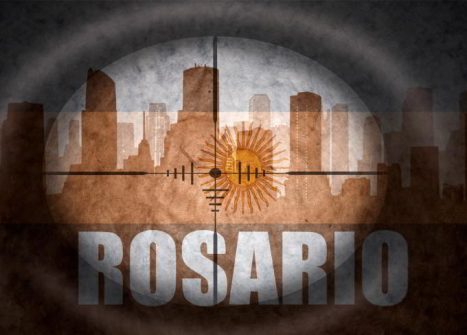
The city of Rosario, is considered epicentre of drug trafficking activities. 123rf
The issue of the fight against drug trafficking represents one of the most critical and complex fronts for the Argentine political system. The Santa Fe region, and in particular the city of Rosario, are considered epicentres of drug trafficking activities, with serious consequences in terms of security, justice and local governance. Its strategic location, combined with the presence of logistical infrastructures such as the river port, has made Rosario a crucial hub for drug cartels, both national and international. This phenomenon has had serious repercussions on security, with an increase in homicide rates and clashes between rival gangs. Argentine institutions have implemented various plans and strategies to combat this phenomenon, but the presence of deeply rooted criminal organisations and the link with international drug trafficking networks make the work extremely difficult.
Furthermore, corruption and the lack of adequate resources contribute to creating a situation of vulnerability that undermines citizens’ trust in the authorities. The challenge of crime is intertwined with internal political issues, thus generating a context of serious instability that affects the country’s prospects for growth and democratic strengthening. (Open Photo: Mate is a traditional Argentine caffeine-rich infused herbal drink. PIxabay)
(F.R.)



